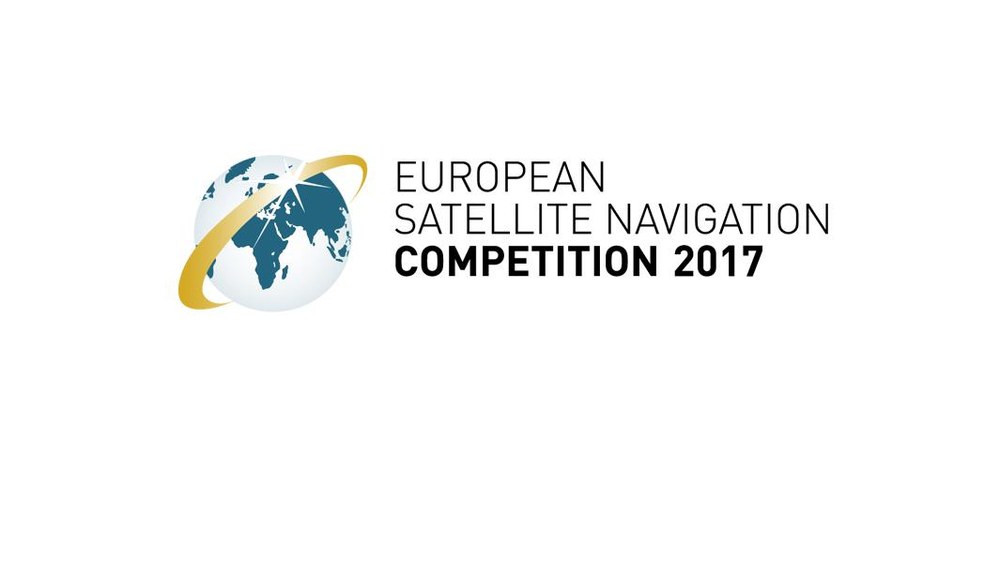Earth observation and satellite navigation: DLR special prizes
- DLR is looking for the best application ideas in the fields of satellite navigation and Earth observation for the European Satellite Navigation Competition (ESNC) and the Copernicus Masters.
- The deadline for applications is 30 June 2017.
The new season has begun: DLR is once again looking for the best application ideas in the fields of satellite navigation and Earth observation for the European Satellite Navigation Competition (ESNC) and the Copernicus Masters. Now, the possibilities are greater. The European satellite navigation system Galileo has been providing services since the end of 2016. Previously, an Ariane rocket delivered four Galileo satellites into their orbits simultaneously, bringing the Galileo system to 18 satellites. The European Earth Observation Programme Copernicus is now ready for action: with the launch of Sentinel-2B at the beginning of March 2017, five satellites are now on their 'guardian' mission, delivering valuable data on Earth's surface, oceans, atmosphere, disaster management, climate change and security.
Robust Means Trust – Galileo for Reliable Positioning
The DLR Special Prize has been awarded as part of the European Satellite Navigation Competition (ESNC) for many years now. This year, approaches and ideas that contribute to the reliability of Galileo services and exploit opportunities for further development are sought.
Galileo is a driver for various new coming applications targeting a broad field from mass market to professional, governmental and safety-critical applications. Along with the applications new challenging requirements have to be fulfilled, especially targeting a robust, resilient and ubiquitous provision of navigation information. This includes positioning in challenging environmental conditions such as dense urban scenarios and in areas with potential radio interference or other types of radio propagation. It is therefore the aim of the DLR Special Topic Prize to maximise the benefits for the user community by supporting new applications and solutions to meet the needs of the real world.
Topic 1: Resilient GNSS
Wide usage of GNSS requires reliable provision of positioning services with sufficient accuracy and availability, and in case of safety-critical applications also integrity and continuity.
Challenge: Hardening PNT with robust designs or backup.
Areas of search:
- Making GNSS receivers robust in challenging conditions
- Fusing GNSS data with information from other sensors for Resilient PNT
- Making the Galileo System itself even more robust against various sources of influences
- Complementing PNT by Non-GNSS (…)
Scope: Identify the problem – create a solution – overcome current limitations – prepare for the future.
Topic 2: Early Services and Applications
Challenge: Utilising Galileo Early Services as standalone system and/or in a Multi Constellation Environment
Areas of search:
- Applications using Early Services of Galileo especially in challenging environments
- Using Galileo in a Multi Constellation Context (…)
Wanted:
- Technical and application oriented solutions
- From space to spatial
- Ready & robust
- For the best usage of GNSS with top-grade trust
The call for proposals is geared towards companies, research institutions, organisations as well as individuals. The winner of the special prize will be awarded a DLR voucher as a prize for further development and targeted implementation of the idea — for example in the form of feasibility studies, design studies or prototype developments. The consultancy and development services at the DLR will cover five person months; conversion to a cash prize is not permitted. The ESNC competition offers the possibility to apply in several categories. The jury will nominate a total winner from the group of finalists – the 'GALILEO Master 2017'. Since 2004, the competition has been organised by AZO - Anwendungszentrum GmbH Oberpfaffenhofen. More information can be found here: www.esnc.eu
Copernicus Masters 2017
The DLR Environment, Energy & Health Challenge
DLR is looking for new applications in Earth observation that address climate change and environmental issues. Sustainable energy management and human health aspects are often related to environmental conditions. In addition to general environmental management, ideas for the generation, distribution or consumption of energy – as well as monitoring or management of health and welfare using remote sensing data – will thus be especially welcome.
Proposals must be based on existing or imminent Earth observation data – preferably from Copernicus Sentinels. They may be supplemented by any kind of ancillary geo-information, such as crowdsourced data or in-situ measurements, for further information enrichment, validation or application. The proposed products or services derived from the ideas submitted should either support professionals in environmental assessment and energy and health management, or empower the general public and consumer-oriented markets. The applications can range from a local to a global scale.
Participants are encouraged to submit innovative ways to link remote-sensing-based products and services with user needs. The ideas can also describe a real-world implementation scenario that includes the general public and/or potential commercial benefits.
Prize 2017:
- The winner will be awarded a cash prize of 5000 euro.
- The winner will benefit from a substantial satellite data quota worth 5000 euro made possible with financial support by the European Commission.
- Finalists will be automatically granted access to the Copernicus Accelerator programme (if eligible).
Copernicus Masters: overall competition
The international competition 'Copernicus Masters' offers the possibility to participate in several 'Challenges'. The winners of each challenge are selected by experts from industry and research. The grand winner – the 'Copernicus Master 2017' – is given the opportunity to be present at the launch of an Earth observation satellite in Kourou, French Guiana, and receives a cash prize. The competition will be organised by AZO. Information on all individual tenders, partners and terms of participation can also be found here: www.copernicus-masters.com



